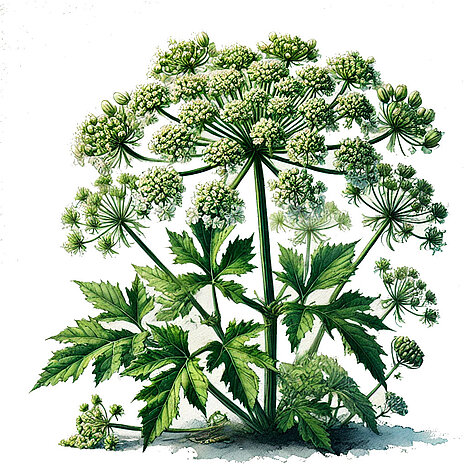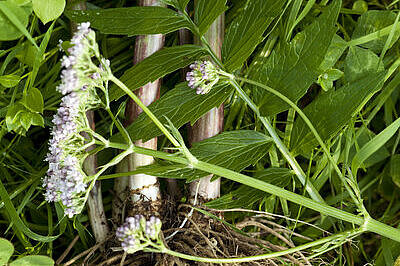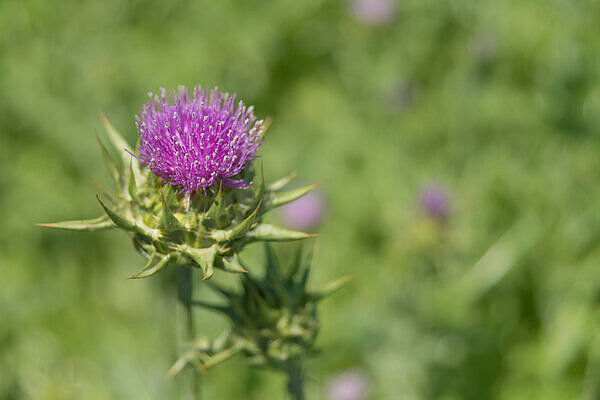Medicinal angelica

What is medicinal angelica?
Medicinal angelica is a stately, perennial plant that is native to the cooler and wetter regions of northern Europe and Asia. It belongs to the umbellifer family and is not only known for its striking appearance, but also for its many uses in folk medicine. The plant has been used for centuries in traditional medicine to treat a range of ailments - from digestive problems to respiratory diseases.
The benefits: Why angelica can be good for dogs
Medicinal angelica is rich in valuable constituents, including essential oils, flavonoids and coumarins, which together can provide a wide range of health benefits:
- Digestive support: angelica can have an antispasmodic effect, helping to relieve flatulence and indigestion. Its calming properties can help with nervous stomachs and promote overall gut health.
- Boosting the immune system: The antioxidant properties of angelica can boost the immune system and help your dog's body to fight off infections more effectively.
- Relieving inflammation: Its anti-inflammatory components can be helpful in treating joint pain and inflammation, which can be especially beneficial for older dogs.
The cons: Caution is advised
Despite their many benefits, there are also some disadvantages and precautions you should be aware of:
- Photosensitivity: some ingredients in angelica can increase the skin's sensitivity to sunlight. This can cause skin irritation in dogs, especially those with light-colored coats or sensitive skin.
- Interactions with medications:Angelica may interact with certain medications and increase or decrease their effects. Always consult a veterinarian before giving angelica to your dog, especially if he is already receiving medication.
- Overdose: As with all herbs, it is possible that excessive administration can have negative effects. Symptoms of an overdose can include gastrointestinal discomfort.
Medicinal angelica is undoubtedly an herb with remarkable properties that, in the right circumstances and in appropriate doses, can be a valuable addition to your dog's health and well-being. However, as with any supplement to your dog's diet, it is important to consider individual needs and potential risks. Consulting with your vet before introducing any new supplements is essential to make the best decision for your four-legged friend. Ultimately, angelica, used with care and knowledge, could offer your dog heavenly support - or at least a small step towards a healthier life.
Properties 13
Are you looking for other ingredients with a specific property?
Just click on them to find more.
If you notice any signs of hypersensitivity or poisoning in your dog, you should see your vet immediately. We are not a substitute for a vet, but we try to be as accurate as possible. Every dog reacts differently and we recommend you get a second opinion or consult your vet if in doubt.
Stay healthy and take good care of your four-legged friend!😊
Similar to Medicinal angelica
Valerian root is the root of the plant Valeriana officinalis, which is native to Europe and Asia. The root contains various ingredients that have an effect on the nervous system, such as valerenic...
Echinacea is a genus of plants from the composite family, which includes several species of herbaceous plants. The best-known species are Echinacea purpurea (red coneflower), Echinacea angustifolia...
Milk thistle, also known as Silybum marianum, is a flowering plant that belongs to the Asteraceae family. The plant is known for its therapeutic properties, particularly for supporting liver...
St. John's wort, also known as Hypericum perforatum, is a flowering plant that is native to Europe, Asia and North America. The plant has been used for centuries in folk medicine to treat various...



